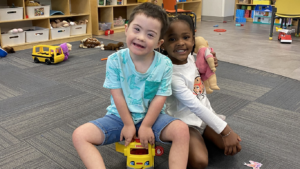Behavioral health has always been as important as physical health, and the COVID-19 pandemic brought it out of the shadows and into the spotlight.
The tight relationship between behavioral and physical health has never been as evident as during the past 18 months of the pandemic. We have collectively experienced the toll that social distancing, isolation, loss, and major changes in routine (work from home, kids learning at home, having to stay at home) have taken. And the prevalence of anxiety and depression and substance use has spiked as a result.
READ ALSO: Most Admired Companies of 2021: Blue Cross Blue Shield of Arizona
Behavioral Health is an umbrella term for mental health and substance use disorders and includes the treatment of diagnosed conditions. As of February 2021, the Centers for Disease Control and Prevention reported that 41.5% of American adults have symptoms of an anxiety or depressive disorder — more than double 2019 numbers. Deaths due to drug overdose, per provisional data from the National Center for Health Statistics, increased during the pandemic, hitting an all-time high of 93,331 up 29.4% from the 72,151 deaths preliminary reported in 2019.
With the behavioral health impacts of COVID-19 remaining elevated as we navigate the Delta variant, behavioral healthcare is key for anyone who struggles with daily life stressors. It is most powerful when considered a beacon of light to illuminate the path rather than a dark shadow to be avoided.

We’ve all been through a lot and taking care of our emotional needs has never been more important.
Talking about mental health is one of the ways we remove the shroud of stigma, so that people feel safe asking for help when they need it. Each of us can add our voice to those in the public eye — Simone Biles, Naomi Osaka, and others who are shining a light on the importance of prioritizing behavioral health. Asking for help and support before any potentially serious impacts of depression or anxiety take a toll is an even better idea. Changing the conversation about behavioral health is another vital way we build resiliency and improve lives.
Collaborating with others across the state, Blue Cross Blue Shield of Arizona will continue to bring behavioral health, both wellness and resilience, and condition treatment into the spotlight. We have the opportunity to inspire holistic health by endorsing the mind-body connection and by creating new connections to care.
When we’re not ok, it’s vital that resources are available.
According to the Arizona Behavioral Health Workforce, 40% of Arizonans live in a mental healthcare professional shortage zip code.
At Blue Cross Blue Shield of Arizona, we are working on multiple fronts to make the connection to behavioral health care easier for members of our health plans and for all Arizonans, and to ensure adequate resources are available.
Through our collaboration with Quartet Health, for example, we are pairing health plan members in Maricopa County with providers that match their preferences and treatment needs. Quartet’s platform will make it easier for patients to quickly connect with mental health care services, including a therapist or psychiatrist.
Blue Cross Blue Shield of Arizona has a strong commitment to supporting the health care needs of the larger community. To help make resources more available, we work with community organizations, including Childhelp, A New Leaf, and Child Crisis Arizona, through our Mobilize AZ initiative – a public health initiative through which we are working to address Arizona’s most critical health issues, including substance use disorder and mental health.
We partner with local organizations that intimately know the needs of those they serve and are working to expand access, build capacity, and strengthen resources for prevention, treatment, resiliency, and recovery. Illustrative of this approach are the grants Blue Cross Blue Shield of Arizona provided at the height of the pandemic’s first wave to organizations working to protect children from stress and trauma related to COVID-19; intervening early to reduce long-term physical and behavioral health impacts.
We invite you to join us, as we break down the stigma and raise awareness about mental health being just as important as physical health. We hope that, together, providers, insurance carriers, community leaders, and all Arizonans continue to make behavioral health an ongoing conversation, so more Arizonans get the help they need.
Dr. Sandra Zebrowski is Corporate Medical Director of Behavioral Health at Blue Cross Blue Shield of Arizona.




